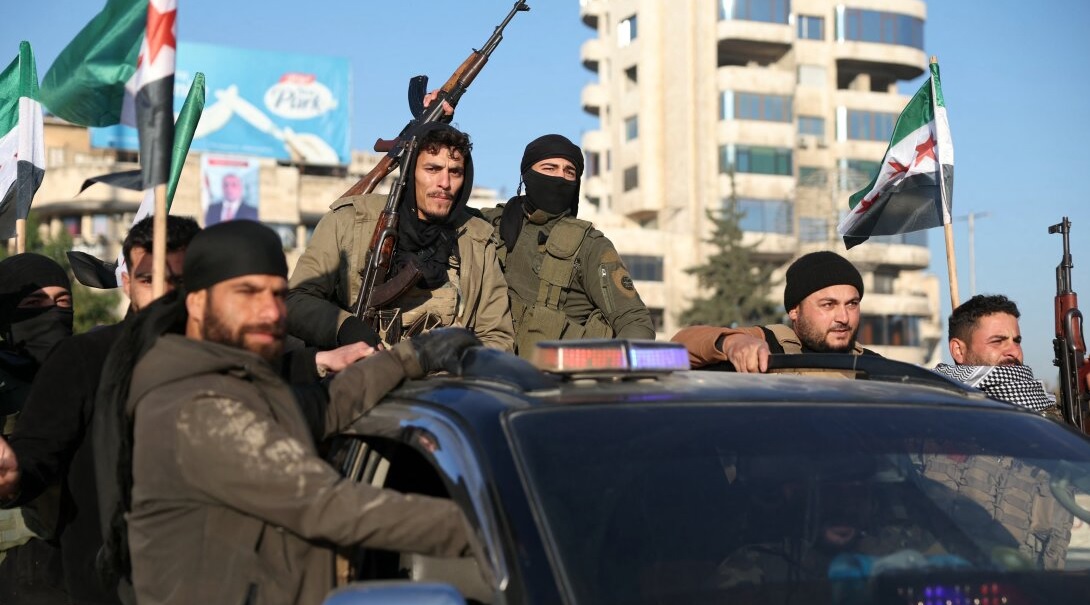Alwaght- The armed rebels in Syria are passing their honeymoon these days after toppling President Bashar al-Assad. Ahmad al-Sharaa, better known for his nom de guerre Abu Mohammad al-Jolani, has hectic days being new leader of Syria and almost everyday hosts foreign diplomats and officials. The conditions in Syria are relatively calm, but will this calm last long or is it just the lull before the storm?
Everything about Syria future has to do with functions of the Hayat Tahrir Al-Sham (HTS) that control majority of Syrian territory. But will this armed rebels manage to control the whole Syria and form a comprehensive government?
Various HTS body
One of the weaknesses of the HTS is that this group is actually a coalition of different armed groups that far from being united and same-minded.
The HTS is a result of a coalition of armed rebel groups that followed the common goal of toppling the government of al-Assad. But now that this common goal has been achieved, will the groups that make up HTS still be able to remain united with their diverse and different ideologies?
This rebel coalition was formed on January 28, 2017, through the merger of Jaysh Al-Ahrar (an affiliate of Ahrar al-Sham), Jabhat Fateh Al-Sham, Jabhat Ansar Al-Din, Jaysh Al-Sunnah, Liwa Al-Haq, and the Noureddine Al-Zenki Movement. Some reports suggest that the HTS currently includes more than 40 small and large armed groups. Among these groups, some have collaborated with it with the goal of establishing an Islamic caliphate similar to the ISIS-eyed one after overthrowing the al-Assad government, including the Noureddine al-Zenki Movement, which is not satisfied with anything less than establishing the caliphate. On the other hand, the current leader of the HTS has pursued a relatively realistic approach, and it does not seem that he has the same ambition as in the past to establish an Islamic caliphate. Al-Jolani has also shown soft tone on some internal Syrian issues and this approach does not appeal to other allied rebel groups. Therefore, it seems highly likely that some armed groups will defect from this coalition in the near future.
Building united Syrian army
The new rulers of Syria now have no choice but to form a new regular army, but there is no guarantee the armed groups will lay down arms. Apart from the fact that some HTS branches may separate their ways from al-Jolani given their view gaps with him, they will possibly keep their arms and this will pose the biggest risk to new army. Actually, odds are that in the new Syria, beside the regular army, several militias will keep their arms under the claim of preserving security and order, hence questioning the authority of the new army.
The experience of suppression of dissidents
The HTS is not new to governance and the group has experience of governing Idlib since 2017, the year it formed a local government in the province off the control of al-Assad government and called it Salvation Government. Reports published by the New York Times about the experience of living under the rule of HTS from 2018 to 2020 indicate the strict approach of this group in dealing with citizens. Gender-segregated cafes, a ban on playing music in shopping malls and cafes, mistreatment of men with tattoos, and forcing women to cover their faces all indicate the strict codes of this group in dealing with segments of society. In Idlib, there were widespread protests against the group from 2018 to 2023, all of which were severely suppressed by the group's forces who imprisoned many dissidents. A repetition of this behavior in Damascus could stir social discontentment in secular Syrian society and lead society towards disobedience.
The Kurdish riddle
The HTS has recently announced holding a summit aimed at disarming all rebel militias in Syria. The biggest absentees of the meeting were the predominantly-Kurdish Syrian Democratic Forces (SDF). The SDF, led by Mazloum Abdi, hold under their control the northeastern triangle and upper regions of Euphrates River. Despite al-Jolani’s admission that the new government of Syria will recognize the Kurds as Syrians, the absence of Kurds in the disarmament meeting indicates that they want share in Syria's political future and will not easily approve of laying down their arms. Now the question is that whether the HTS is ready to incorporate them in the new politics. The past experience of the HTS tells us we cannot be very much optimistic about the group showing flexibility to share political power with other ethnic groups including the Kurds. In this case, the Kurdish question remains one of the certain challenges ahead of the future HTS-led rule over Syria.



























